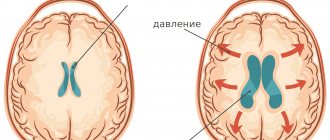Adolescence in boys is a sharp leap in physiological and psychological development, which is associated with external and internal changes in the boy. During this period, boys gradually turn into men, and this difficult process is associated with the emergence of numerous questions and problems in relationships with adults and peers. In this article we will tell you how to protect your child from crises associated with adolescence, and how to help your son cope with the emerging changes.
When does puberty begin for boys?
The first signs of the transition period in boys begin to appear at the age of 9-13 years. The age at which a boy will experience physical changes is influenced by many genetic, internal and external factors. Among these factors are: genetics, climate, general health, nationality, the presence of pathologies, etc.
Due to the abundance of different conditions, it is difficult to determine specifically when the transitional age starts and ends for boys in general. One thing is for sure, if you are attentive enough and communicate closely with your child, then you will not miss this period.
Puberty of girls, girls, sex formula, female puberty
What is the age of puberty for girls ? Puberty in girls most often occurs between the ages of 12 and 16 years. When assessing the puberty of girls, the following are taken into account: P – pubic hair growth, pubic area; Ax – armpit hair growth; Ma – mammary glands, Me – menstruation (menstruation). At different ages, the sex formula changes.
The sexual formula P0 Ax0 Ma1 is observed between the ages of 8.6 and 12.0 years.
The sexual formula P1 Ax0-1 Ma1 is observed between the ages of 9.8 and 13.4 years.
The sexual formula P2 Ax2 Ma2 is observed between the ages of 10.2 and 13.5 years.
The sexual formula P3 Ax2-3 Ma3 is observed between the ages of 11.0 and 14.3 years.
The sex formula P2 Ax3-4 Ma3 Me+ is observed between the ages of 11.1 and 14.4 years.
The sex formula P2 Ax2 Ma3-4 Me+ is observed between the ages of 12.0 and 15.5 years.
The sex formula P3Ax2Ma3-4Me+ is observed between the ages of 12.8 and 15.7 years.
The sex formula P3 Ax3 Ma3-4 Me+ is observed between the ages of 13.5 and 16.9 years.
0 is the absence of a trait, 3 - 4 is maximum sexual maturity. During puberty, girls begin to develop mature eggs. There is a change in behavior and psyche and attraction to guys.
Signs of adolescence in boys
The transitional age in boys is also called puberty, this is due to the fact that it is at this time that boys begin puberty. The first obvious signs of adolescence appear precisely in connection with the accentuation of secondary male sexual characteristics, and only then the changes affect the psychological component of the personality. Let's look at the general issues that arise at different stages of the transition period, and then move on to specific age characteristics and issues related to them.
Characteristic manifestations
There are three stages:
- preparatory, also called junior adolescence - the psyche and body are preparing for impending changes;
- pubertal;
- postpubertal - the end of the formation of the psychological and physiological beginning.
During puberty, intense secretion of androgens occurs, which triggers physiological processes. This stage is called adrenarche.
Let's look at the signs of adolescence.
- Growth of external male organs. Initially, there is an enlargement of the testicles, which lasts for approximately 12 years. This also enlarges the penis. The frequency of erections increases, polytations are possible, normally they are observed every two days. Already at the age of 14, a teenager can form full-fledged sperm.
- Hair Growth. Initially, hairs begin to grow on the pubic area and at the base of the penis. At first the hairs are sparse, but become thicker over time. Six months to 18 months after the beginning of the appearance of hair in intimate areas, hair appears under the arms, around the nipples, and a kind of mustache and beard appears. It is necessary to understand that not all young men will have hair covering their entire chest, and some will grow hair on their back.
- Voice change. Under the influence of androgen production, withdrawal occurs. This is the result of accelerated development of the larynx, the vocal cords become longer and thicker. This phenomenon may be typical for 13 years. The teenage boy's voice becomes low. Voice instability may occur over several years. The final timbre will be established by age 15.
- Changes in muscle tissue. During this period, boys grow quite quickly, bones grow, and muscle mass also increases, which reaches its maximum value a year after the first signs of puberty appear. At the end of puberty, males have twice as much muscle mass as girls.
- Change of smells. Under the influence of sex hormones, changes occur in fatty acids that are part of sweat. Sweating increases and a specific unpleasant odor appears. There is also an increased production of secretions from the sebaceous glands, which causes the skin to become oily and the first acne to appear.
Characteristic manifestations of adolescence include rapid growth of bones and muscle mass, development of male genital organs, voice loss, acne, growth of pubic and armpit hair, and pollution.
My son is a teenager. It’s been almost a year since puberty began, namely at 12 years old. During this time, he experienced certain changes characteristic of puberty. What surprised me most was the breaking of my voice, which I practically did not notice, which cannot be said about other relatives. There have also been changes in character. The son wants to be independent, wants to fulfill the role of a man in the family. But sometimes he has outbursts of anger in situations when something is forbidden, but he really wants it.
Adolescence in boys
The life of every boy in terms of physiological and psychological changes can be divided into three stages, at each of which parents will face their own set of typical problems. The first stage is preparatory; at this stage, the boy’s body accumulates the necessary materials for further development. The presence of this stage causes a fairly common situation when a boy by the age of 10-11 years gains a lot of weight, becomes calmer, and by the age of 14 he sharply “stretches out” and becomes sharper in his communication.
The second stage is puberty, this is the same transitional age that is characterized by numerous changes occurring in the body. Increased excitability and irritability are characteristic of this period, mainly because physiological changes invariably entail psychological ones, which require a kind of “break-in” before they begin to function at full strength and without interruptions. At this stage, parents need to show care and patience, because many character traits that may seem harsh to you or inappropriate for a well-mannered son can be caused precisely by physiological changes, which are not so easy to wade through alone.
The third and final stage is post-puberty. The stage is characterized primarily by the emergence of attraction to the opposite sex and awareness of one’s own sexuality. This is due to the fact that the changes that occurred with the boy during puberty were already integrated into the systems of the whole organism and began to function, and one of the main changes was the end of the formation of sexual characteristics and the reproductive system. Therefore, at this stage, the boy’s mother and father will face increased attention to girls and the resulting problems. Returning to the transition period in boys, let's look at the specific changes that occur in their bodies.
Physiological reasons
Puberty is the age when the body grows most actively. Development proceeds in fits and starts, unevenly. Over the course of a year, a child can grow by 7-10 centimeters and increase body weight by 5-9 kilograms. The skeleton becomes stronger, the muscles improve. The heart muscle grows rapidly in length and width, blood pressure and the rhythm of the heart change.
Along with the intensive growth of the body, the shape of the body also changes. Gender characteristics develop, hormonal levels change, the endocrine system is rebuilt, and the endocrine glands are activated. Moreover, puberty in girls begins 1-2 years earlier and ends by 15-16 years. At the age of 10-12 years, they outstrip boys in height. However, by the age of 15-16, boys are already significantly taller than girls and continue to grow until they are 18-20 years old.
It is very difficult for the nervous system to adapt to changes, since it simply does not have time to adapt to active growth. Therefore, the psyche is often in a state of excessive excitement or, conversely, tries to slow down the processes and goes into pronounced inhibition.
Due to all the physiological changes, temporary disorders develop in the child’s body:
- jumps in blood pressure – hypertension is often observed, but hypotension is also a normal option;
- dizziness, headaches;
- poor concentration, distracted attention;
- rapid heartbeat (tachycardia), a feeling of tightness in the heart area;
- dyspnea;
- fainting conditions;
- fast fatiguability;
- increased excitability, sleep disorders.
Physiological processes directly affect the health and behavior of a teenager. In order for the body to be fully formed and the growth spurt to be successful, it is necessary to provide high-quality support for the processes: proper nutrition, saturation of the diet with vitamins and microelements, adequate physical activity.
It is important to consider that there are significant individual differences in physical development and puberty. The age at which active changes begin in a child’s body may deviate from group norms, and this should not cause concern.
Transitional age at 10-12 years
During this period, boys’ testicles and penis increase in size, pubic hair begins to appear, the body is still “swinging”, having already started the process of changes, but not yet in full force.
It is at this age that children become more interested in spending time with peers than with their family. You can notice manifestations of the first aggression and childhood cruelty.
From a psychological point of view
This is where there really are a lot of pitfalls, nuances and difficulties, and that is in the mental state of the child. Many changes are taking place, often quite negative, but not critical.
When puberty begins in boys, it should be remembered that the psyche of adolescents is extremely unstable, and emotional balance is fragile. At this time, they become very vulnerable and cannot adequately perceive criticism addressed to them: either they begin to scream and get angry, or they withdraw even deeper into themselves, engaging in self-flagellation, internally “eating themselves.” The teenager strives for independence, defends his adulthood and independence. That is why the reaction of loved ones and relatives, especially parents, is important to him. It is vital for a young man to see that you perceive him as an adult man, allow him to make decisions on his own, do not command or patronize him.
Photo source: shutterstock.com
For example, your son said that he is going for a walk with friends. You shouldn’t call him every 15 minutes and ask how he’s doing, if everything is okay and if he remembers to be home at the specified time. With such “concern” you will make him a laughing stock in front of his friends, from which your child may become furious and out of spite return late and not completely sober (again, to spite you) or sober and on time, but start making trouble. Whatever your parental impulse, restrain yourself and ask to warn you before the walk if it is delayed. This will let him know that you trust him, respect him and believe that he is old enough to control himself.
It is equally important for teenagers to reveal themselves as individuals. Personal space is important to them - their own room or at least their own corner, where no one will intrude without their knowledge. Many parents - with the best, in their opinion, intentions - strive for total control of the child, look through his correspondence on social networks and on the phone, and forbid him to communicate with certain “suspicious” individuals, in their opinion. Thus, not only do they violate his rights and introduce a whole bunch of complexes and problems into adult life, but they also undermine the teenager’s confidence in himself and complicate his life, giving even more reasons for conflicts.
Put yourself in his shoes. You probably wouldn’t be pleased if someone you trust got into your phone or correspondence and found something, in the opinion of this “scout,” strange and frightening. And then, when you returned from work, this person would be taken aback by the phrase: “You write in correspondence with this and this that they don’t understand you at home and in general you want to run away. I wonder what we did to you? Well, come on, what did we do wrong? Or something like that. How would you feel?
Another characteristic of teenagers is isolation, gloominess, and constant depression. This is due to several factors. Firstly, adolescents' self-esteem is quite changeable, usually towards low. They are not fully aware of the changes in their body, and they think that they look bad. Guys' self-esteem may decrease due to problems establishing relationships with girls. Secondly, you need to remember about such a concept as “youthful maximalism.” This means that teenagers divide the world into what is right and what is foreign, into what they adore and what they hate. And since communication is the main thing at this age, it is important for him to live up to the people whom he has elevated to the rank of ideal. And the slightest discrepancy with one group or another can greatly upset a teenager. Thirdly, increased fatigue from changes in your body. Often parents call this laziness and push their youngsters even harder to study.
There is one more important thing to understand about isolation. You should not expect frankness from a child if you did not establish trusting relationships before puberty and adhered to an authoritarian or oppressive system of upbringing. It will be easier for him to share his worries with friends, but not with the person who is easier to yell at him or punish him. During this period, you need to try with all your might to show him that you are on his side, choose your words very carefully. Many attribute isolation to a sure sign of drug addiction, which is far from true. If your son doesn't want to tell you about school or doesn't want to talk at all, this doesn't mean he's a drug addict and shooting up behind garages with friends. This means that he is not interested in this topic or he is worried about something, but is afraid to tell you. Afraid of judgment or ridicule from you.
Another stumbling block between generations is computer games. In everyday life, there is a misconception that if a boy plays “shooting games”, then he will definitely grow up to be a killer, that his eyesight will deteriorate from long hours at the computer, and that the fact that he spends all his free time at the computer indicates gambling addiction and urgently needs to be run to a psychiatrist. Now, that's not true. By playing “aggressive” games, a person relieves stress accumulated during the day, which has been proven by scientists. They found no connection between computer games and human behavior. Therefore, there is no need to shift responsibility for the child’s aggression from yourself to games. Aggression is another sign of puberty. This is how boys try to show their masculinity. Another passion for games may be a sign of a child’s loneliness, the absence of any social circle other than this.
Therefore, if in response to your speeches, which sound to him like “blah blah blah,” he says: “Well, now! I'll get to saving! I’ll kill the boss and that’s it!” – just ask how much time he needs, and tell him that after this time you expect him to leave the game. As soon as the agreed time is up, do not rush into his room. Wait at least 5 minutes and then check. In most cases, this method is effective, and the teenager obediently leaves the game. This can become your common topic of conversation. You can ask him what he plays, ask him what game he wants to buy, and if it's inexpensive, give him pocket money for it.
In general, when your son enters adolescence, you need to be as interested in his life as possible. But not for the purpose of manipulating him. And show that he is important to you for who he is, and his interests too. Listen to his music with him, try to find songs of a similar genre and share with him. Talk about your experiences at his age, don’t be afraid to talk about the actions for which you are ashamed, or the mistakes you made. It is important to be on the same page with your teenager, because he really needs protection from constant changes and your support, no matter how much he denies it.
Photo source: shutterstock.com
Denial of everything old is another trait of adolescence, called negativism. This is his way of saying goodbye to childhood, showing himself that he is already an adult. If it’s something uncritical (favorite color, movie, dish, song), then don’t say: “But you liked it so much!” Let's try again!". Support him in the changes, help him build a new one in place of the old. It should be remembered that teenagers are not very good at planning, because they live one day at a time. Their hobbies can vary greatly, depending on how much others, and especially their parents, approve of them. Therefore, if you see that your teenager is trying to write poetry, draw, play the guitar, support him in this. Yes, he may not succeed right away, but with your support he will be able to develop his talents. Again, there will be less sitting at the computer if it bothers you that much.
A little more about fatigue. It has been noticed that in adolescence the brain works somewhat worse, and absent-mindedness is often observed. As a rule, in grades 6–8, a child “slides” academically. If you notice this with your son, ask him what he struggles with and what subjects he finds easier. Help him with his homework and don't scold him for bad grades if you see that he is trying his best but is struggling in a subject. Understand that the main thing in school is not grades, but the knowledge that your child will receive. And let him know that you don’t love him for his academic success.
But in fact, you need to remember that all children are individual and that some signs, especially psychological ones, may simply not appear. Especially if you and your child have established good friendships. Remember that no matter how “cactus” your child is, he still needs your support and love, and not total control, reproaches for poor performance and condemnation.
Transitional age at 13-14 years old
At this time, boys' voices begin to break due to the growth of cartilage, enlargement of the vocal cords and muscles in the throat. Active hair growth continues throughout the body, with hair forming above the upper lip. It is during this period that a growth spurt occurs and the shoulders become wider. A rash appears on the skin, this is due to the fact that different hormonal complexes come into force. This is an absolutely normal phenomenon, and it is worth telling your child about it so that it does not frighten or shame him.
Personal hygiene rules are changing
Don’t forget to teach your son the basics of personal hygiene, because uncleanliness can lead to balanoposthitis and other diseases. Daily toilet, frequent change of underwear is a mandatory item in the personal care program not only for girls, but also for boys. Don’t forget that a boy’s sex glands are more active and, naturally, an unpleasant odor appears. The boy himself may not notice this, but his classmates and friends (and, of course, girls) will definitely notice. Don’t forget to pay attention to this and - again - “long live scented soap” and neutral deodorants.
Transitional age at 15-16 years old
Around this time, the voice begins to break down and the timbre becomes lower. This period is characterized by the teenager’s active self-determination, the desire to demonstrate and show off his own strength, dexterity, and speed. It is at this stage that a change in moral guidelines and assessment systems begins to actively occur. The foundation of an independent personality is being built, which requires a certain life goal and aspirations. This stage of development is especially difficult from a psychological point of view; the teenager has frequent mood swings, reluctance to learn, and an excessive desire for independent life without outside interference.
Symptoms and signs
The transition from childhood to adulthood involves changes in the brain and body, often occurring at different rates.
Characteristic signs indicating the beginning of the transition stage:
| Physical development | During adolescence, a boy's body experiences a growth spurt and weight gain may also occur. Rapid physical development during this period requires boys to consume an increased amount of calories, which often leads to eating disorders and teenage obesity. |
| Cognitive development | Teenagers assert their independence from others and begin to make decisions on their own. This is largely due to changes in brain development that lead to the development of cognitive abilities. During this time, a large number of neurons grow rapidly and the interconnectivity between them increases, allowing for more complex and sophisticated thinking. |
| Psychosocial development | Abstract thinking and teenage rebellion are typical forms of adolescent behavior. During this time, teenagers have more complex thinking abilities, so problems related to self-esteem are common. |
The beginning of the journey in adolescence almost always coincides with puberty.
Features of adolescence at 17-18 years old
This is the final stage of changes: puberty gradually ends, the growth rate of the spine and tissues noticeably decreases, and the craving for the opposite sex especially intensifies, because This is already a post-pubertal period of development. This period coincides with the end of school, the emergence of new responsibilities and the need for self-determination and choosing one’s path in the future. It is now that a teenager begins to recognize himself as a young man, as one of the engines of society. At this stage, it is especially important for parents to be able to talk with their child and be able to direct his thoughts in the right direction.
Stages of puberty, stages
What are the stages of puberty ? Experts distinguish 5 stages of puberty: stage 1, stage 2, stage 3, stage 4, stage 5. Stage 1 – childhood, prepubertal period. Stage 2 – the beginning of adolescence, the beginning of puberty. Stage 3 - the beginning of adolescence, the first period of puberty, stage 4 - continuation of adolescence, the second period of puberty, stage 5 - the onset of sexual biological maturity, the end of the puberty period.
Tips for parents
Parents often think that adolescence should proceed with minimal interference on their part, arguing that otherwise the child will not be able to develop his own point of view on the world around him and prepare for life in it. This statement is extremely dangerous for your children and yourself. If you want them to grow up to be full-fledged individuals, grateful for a good upbringing. Parental intervention in the process of a teenager’s development as a person is necessary, the main thing is not to overstep the boundaries of mutual trust.
- Communication with father. During puberty, the father plays a very important role for a boy. It is the dad who has the necessary authority and experience to explain to the boy what is happening to him at this stage and why it is important. Thus, when communicating with his father, the boy will not only feel more confident in the process of all the changes happening to him, but will also adopt the social model of his father, a wise man who can always discuss any problem with his son.
- Find your child a hobby. This should be done even before puberty, so that at key moments of physical and psychological development the boy always has the opportunity to release excess energy in a favorable direction, and not into crime or addiction to a computer or drugs. A correctly and timely chosen sports section will help your child not only lead a healthier lifestyle, but will also shape his body and spirit in such a way that he will be grateful to you for a long time.
- Determine the level of freedom for the boy in time. One of the key parameters in becoming a real man is willpower and the ability to make decisions independently. If you timely delimit for yourself those areas of life in which you will not interfere, and provide your child with the opportunity to solve certain problems himself, then you will help him develop the above-mentioned masculine qualities. For example, when giving pocket money to your child, decide whether you will control where he spends it or not. Discuss with your family whether your child can bring guests home and under what conditions, etc. The main thing is not to forget that trust is very easy to destroy, and by promising a child something, you thereby enter into a trust agreement with him, which you undertake to fulfill. By violating it, do not be surprised that the child’s attitude towards you changes for the worse.
Recommendations for parents to overcome the crisis
Despite the difficulties in communicating with parents and the active desire to separate, during a crisis period a teenager needs proper support and protection from adults. At the same time, parents need to give up previous forms of control and give the child the necessary amount of freedom.
Each child is unique, and parents will have to find an approach on their own. But a few simple recommendations will help you understand the teenager and help him overcome the crisis:
- Unobtrusively enter the environment . A friendly, calm approach will help overcome misunderstanding and aggression. Participation in life situations and common interests will allow you to unobtrusively help your child solve problems as needed.
- Be interested in hobbies . It wouldn’t hurt to share the child’s interests, discuss his hobbies with him, talk about his thoughts and find out his point of view on various issues.
- Be patient with emotional changes . A violent reaction should not cause an explosion of emotions in response.
- Provide freedom . It is important to provide the child with his own space, and, if possible, a private room. You should restrain your desire to control his actions, hobbies, emotions.
When talking with a teenager, you should also adhere to a number of rules :
- Avoid notations. Even small children do not like moralizing, and in a teenager they will only cause protest and aggression. Within a few minutes his attention will switch to something else.
- Don't blame, don't criticize. Any comments must be made in an environmentally friendly manner, without accusations, moralizing or imposition.
- Discuss casually. Teenagers are not always ready for serious conversations face to face. Increased attention to the child’s problems will make him think that his independence is being doubted. But careful conversation during joint activities will bring results.
- Don't raise your tone. Calm conversations are more effective than shouting and scandals.
- Praise. Due to their insecurity, teenagers really need praise and approval.
- Communicate with your child via instant messengers and social networks. Children spend a lot of time on smartphones and tablets. Correspondence in instant messengers is familiar to them. Communication in such an environment will allow conversations to take place in a direction that is comfortable for the child.
Even correct behavior on the part of parents does not exclude the possibility of conflict, aggression and disobedience in a teenager. However, a respectful attitude towards the individual and the appropriate manner of communication between adults can reduce the severity of crisis signs and their intensity.
Time to become a child's friend
You need to try to treat the child with respect. Let's not confuse the concept with familiarity!
Parents must remain an authority for the boy.
Therefore, the help is different and looks like this:
- General leisure. Relationships are strengthened not only in entertainment venues. Trips to historical places and joint hikes are useful. If you don’t have enough time, it’s enough to limit yourself to family walks.
- Education without subjugation. This is not about the boy's permissiveness. It is important for a future man to understand the limits of acceptable actions. For successes, do not forget to give friendly praise and indicate confidence in the teenager.
- Conversations without coercion. It’s good to wait for the boy’s positive mood. Abruptly cutting off a child’s revelations is a fatal mistake for parents. He trusts his friend with his most intimate secrets.
- Organization of personal space. Allowing the boy to grow up in a separate room is the best option. If there is no extra living space, it is not a problem to allocate a separate corner for it. The child will appreciate respect from an older friend.
Remember!
On average, by the age of 17-18, maturation ends and it is already too late to build a trusting relationship with a grown-up guy. The family becomes a battleground for voting rights. The split between the older and younger generations is becoming obvious.











